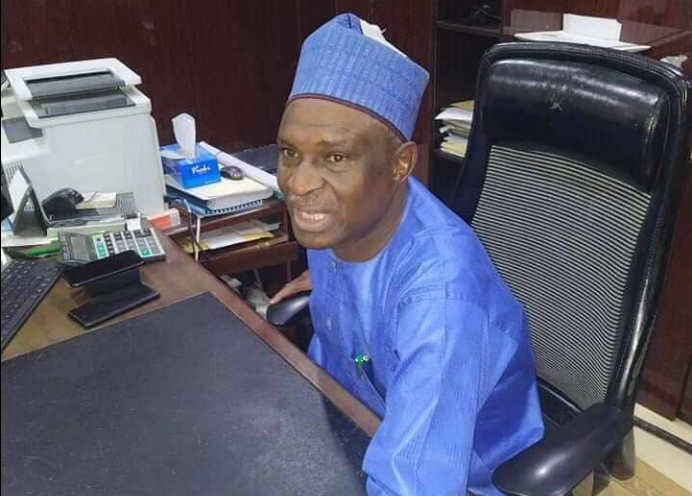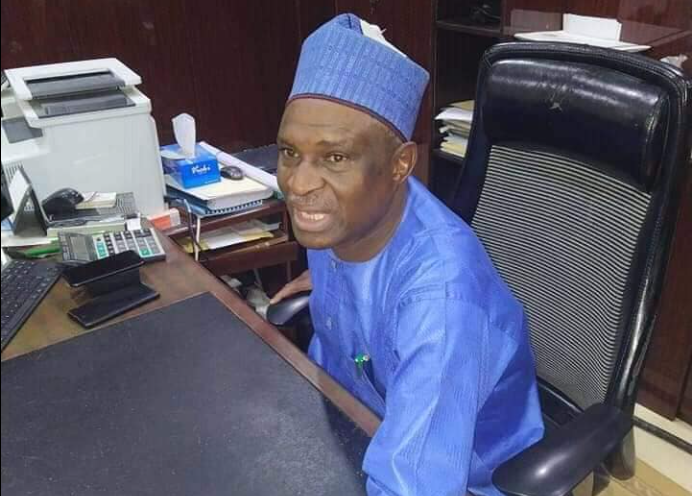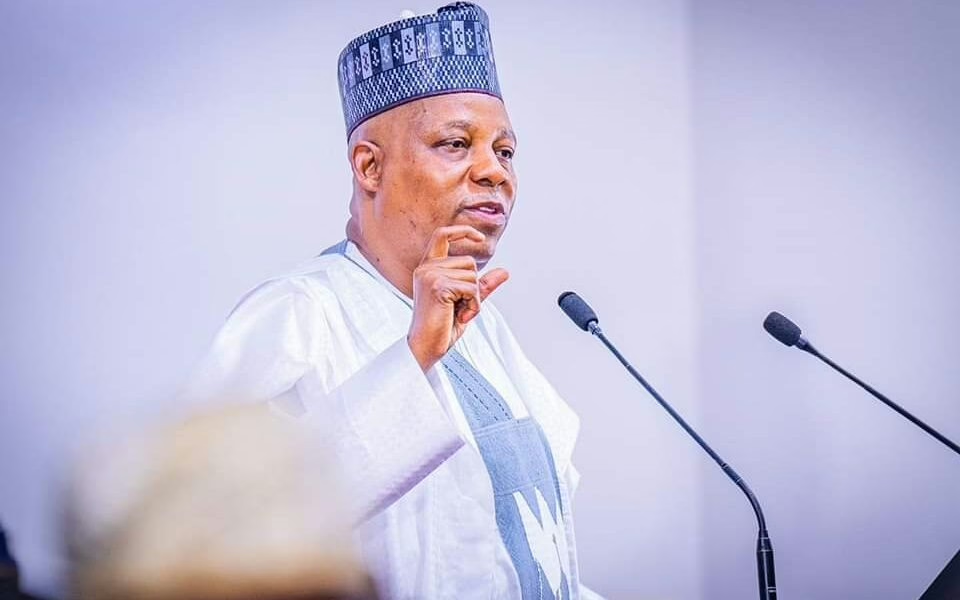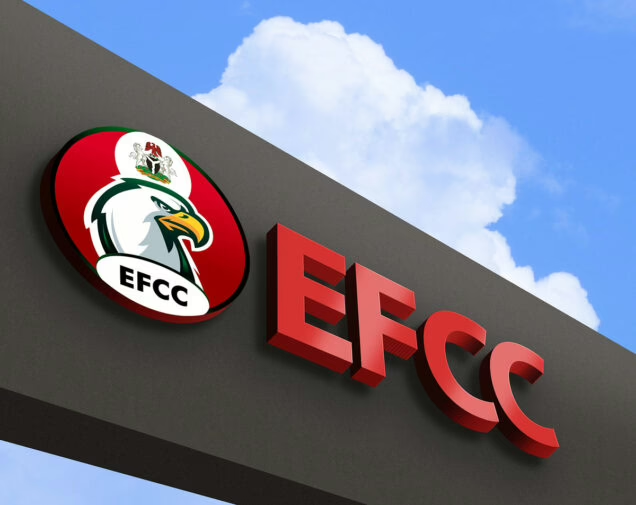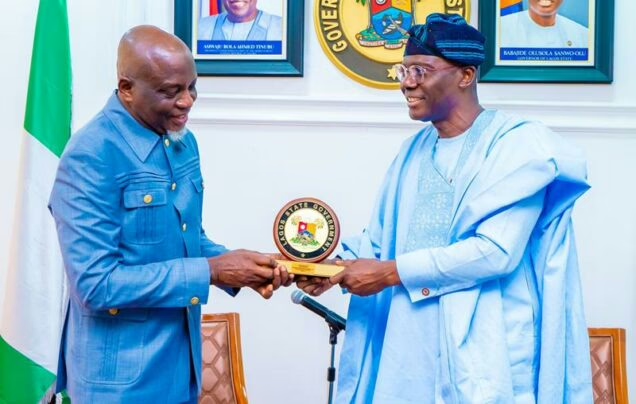Public Interest litigation in Nigeria: Challenges and opportunities (1)
Ebun-Olu Adegboruwa
Published By: Paul Dada
By Ebun-Olu Adegboruwa, SAN
Very recently, the Centre for Human Rights of the University of Lagos, in collaboration with the Women Advocates Research and Documentation Centre (WARDC), organized a seminar on the state of public interest litigation in Nigeria, its challenges and opportunities, with specific focus on reproductive justice. Given the challenges faced by the female gender in many deprivations and reprisals, it was a golden opportunity to explore the opportunities presented by law for their protection and safety. Permit me to share with you the keynote address presented at the occasion.
A. INTRODUCTION:
Most of the activities and impacts of activities we give and receive either for good or for evil in the socio-political realms of our world are anthropogenic. In other words, they are man-made. It has to be arguably a little short of angelic for the political philosopher, Thomas Hobbes, in his “Leviathan” (1651) to utter those oracular words that “life is brutish, nasty, and short” and that humanity is “war of all against all.” Hobbes’ extremities are certainly something we can all debate and justifiably so. But here is a sense in which we have to agree with his idea on this point. Another thinker/poet of the 18th century Robert Burns in his “Man Was Made to Mourn” (1784) speaks of “man’s inhumanity to man”. The sufferings that humans inflict upon each other are the most eloquent testimony of the depravity and darker aspects of human nature. However, granted that there are evil men who inflict pains, providence has carved out a lifeline in the hearts of some humans also to administer pain relief. A part of that pain-relief-giving caste of the human society express their functions and operations through the instrumentality of Public Interest Litigation (PIL). It is against this backdrop that we shall explore the dynamics, challenges and opportunities associated with PIL.
B. CONCEPTUAL CLARIFICATIONS:
1. Public Interest:
Public Interest may be defined as the general welfare of the public that warrants recognition and protection. Some things in which the public as a whole put at stake especially an interest that justifies governmental regulation.
2. Litigation:
Litigation is generally thought of as the process of resolving rights-based disputes through the court system, from filing a lawsuit through arguments on legal motions, a discovery phase involving formal exchange of information, courtroom trial, judgment and appeal. It refers to the process of taking legal action through the court system to resolve a dispute or enforce a right. It involves a series of steps, including filing of originating processes (Writ of Summons, Originating Summons, Originating Motion, Petition, a charge or information, etc); service on the opposing party with legal processes/documents; filing of motions and briefs; attending hearings and trials; arriving at a judgment or judicial decision and sometimes, appeals.
3. Public Interest Litigation (PIL):
Public Interest Litigation may be defined as a legal action initiated in a court of law for the enforcement of public interest or general interest in which the public or a class of community have pecuniary interest or some interest by which their legal rights or liabilities are affected. The learned authors, Adeniyi & Olomola, on the meaning of PIL, write:
“Public Interest Litigation is a legal mechanism through which individuals, groups of people and communities contest government decisions and challenge social justice. It is done for the protection of collective interests. Issues of social and economic imbalance are challenged through PIL and it is often adopted as a strategy in support of the less privileged and the vulnerable in the society. Access to justice can be affected by indigence, thus PIL provides a veritable avenue to commence litigation against mistreatment and deprivation of social and economic resources.” (Khatthewale 2016).
C. LEGAL FRAMEWORK FOR PIL IN NIGERIA:
1. The Constitution of the Federal Republic of Nigeria (1999) as amended;
2. African Charter on Human and Peoples’ Rights (Ratification and Enforcement) Act, Cap. A9, Laws of the Federation of Nigeria, 2004;
3. Fundamental Rights (Enforcement Procedure) Rules, 2009
4. Legal Practitioners Act
5. Rules of Professional Conduct for Legal Practitioners
6. Legal Aid Act of 2011
7. Various Rules of Court
8. Administration of Criminal Justice Acts/Laws
9. Child’s Rights Act.
10. Trafficking in Persons (Prohibition) Enforcement and Administration Act, 2003.
The list is, by no shred of imagination, an exhaustible one.
D. THE DYNAMICS AND INSIGHT INTO THE PROVINCE OF PIL IN NIGERIA
Over the years, right from the Pre-colonial, through the Colonial, Post-colonial/Independence, Post-independence/Military, and now Democratic (actually pseudo-democratic) dispensations of the Nigerian Legal System, certain forces, energies, and catalytic processes have reacted and interacted building the momentum and lead-up to the evolution of what may be referred to today as the Nigerian brand of PIL if we may call it that. Some of these forces come in the form of dominant legal personalities such as activists/freedom fighters, constitutional lawyers, activist judges and justices (especially during the successive military juntas); others are in the form of radical reforms, legislations, and landmark judicial decisions and pronouncements which advanced the frontiers of jurisprudence both in the areas of substantive law and procedural/adjectival law inuring to the development of PIL. Some of these factors are examined as follows.
1. Constitutional Interpretations and Reforms:
- ATM Fraud: CPC, NBA Set To Tackle Banks
Successive constitutional reforms have birthed critical developments in favour of key areas of PILs. A lot of judicial interpretations have gone into some of the provisions of the Constitution leading to notable decisions which have broadened the scope of those provisions in the interest of PILs. Chapter 4 of the Constitution, in particular sections 36 and 46 of the Constitution have featured prominently in this interpretative function of the courts which has advanced the frontiers and effectiveness of PIL.
2. Epochal Decisions of Activist Judex:
Judicial activism in public interest litigation is one of the absolute tools for good governance, quality and responsive leadership and accountability in governance. On the concept of Judicial Activism, two juristic scholars write:
“The concept or the practice of judicial activism has been used regularly in Nigeria’s legal and judicial lexicon for some years. Justices Oputa and Eso were the two judicial activists at the forefront of the campaign that canvassed for Nigerian judges to wear the garb of activism (Elemuo, 2008). Late Oputa JSC (rtd.) provided what can be referred to as the correct interpretation of the concept of ‘judicial activism’ in the case of Aliu Bello V. A.G Oyo State (1986) 5 NWLR (Pt. 45) 528 at 886), where he said that:
“The spirit of justice does not reside in forms and formalities nor in technicalities nor is the triumph of the administration of justice to be found in successful picking of one’s way between pitfalls of technicality.”
In the same vein, Late Eso JSC (rtd) stated in Trans Bridge Co. Ltd V. Survey Mgt. Ltd (1986) NWLR (pt. 37) 576 at 596 597), that:
“It would be tragic to reduce judges to a sterile role and make an automation of them. It is the function of judges to keep the law alive, in motion, and to make it progressive for the purpose of arriving at the end of justice.”
According to both jurists, judgment of the courts should meet the socio-political and economic events of the times. Where adherence to formality and technicality will not meet the required justice of the matter, the judge is duty bound to distinguish the precedent from the present matter (Elemuo, 2008).
PIL in Nigeria owes its very existence to the lordly voices of audacious judex both at the trial and appellate jurisdictions, in history and in contemporary times but especially in history, unfortunately. Landmark decisions have shaped the law and practice of PIL and operated to redefine the borders of issues such as locus standi. Take for instance the case of Fawehinmi v Akilu & Anor, the apex court made a welcome departure and paradigm shift from its stance in the earlier case of Adesanya v. President, FRN. In that case, the Appellant had approached the High Court to secure an order of mandamus to, inter alia, compel the Director of Public Prosecution of Lagos State to come to a decision on whether or not to prosecute some suspects in Dele Giwa’s murder. The Supreme Court, in reversing the decision of the lower courts, held that the appellant had locus standi to bring the action. The dictum of Kayode Eso, J.S.C. is commendable. This Noble Lordship had this to say:
“In the instant appeal before this Court I think, with respect, that the lead judgment of my learned brother Obaseki JSC is an advancement on the position hitherto held by this Court on ‘locus standi’. I think again with respect that it is a departure from the narrow attitude of this Court in the Abraham Adesanya case and subsequent decisions, for strictly speaking, my Lord Nnaemeka-Agu JCA (as he then was) who no doubt was bound by those decisions at the time was right in his interpretation of the stand of this Court, and so strictly on those authorities of this Court, along, his judgment with respect, could not be faulted…My humble view, and this Court should accept it as such, is that the present decision of my learned brother Obaseki JSC in this appeal has gone beyond he Abraham Adesanya’s case. I am in complete agreement with the new trend and, with respect, my agreement with the judgment is my belief that it has gone beyond the Abraham Adesanya’s case.”
It is on this note that the way has now been paved and expanded enabling PIL practitioners and organizations to assume locus standi especially in constitutional matters to institute PIL cases.
EPILOGUE
DIGITALIZATION OF THE COURTS
I share a personal experience on the need to digitalize the judicial process, including the assignment of cases and fixing of hearing dates. I had cause to file some cases in respect of certain urgent developments. It happened that at the time of filing the cases, judges all over Nigeria had converged in Abuja for week-long seminar, including the administrative judges who are to assign cases. I was under immense pressure to act fast or else the subject matter of the cases may be jeopardized. We interacted with the court registrars in charge of litigation and we assured that as soon as time permits, the cases will be assigned. I was excited initially since I truly know and was well familiar with the administrative judge and it was only a matter of administrative decision and not judicial discretion. However, a voice rang in my spirit to remind me of the person who trained me. I was reminded further that now close to thirty years in legal practice, I have never spoken to any judge on my cases. And what about other lawyers who do not know any administrative judge and occasions when I may file cases in jurisdictions where I may not know any judicial officer? I quickly dismissed the idea of any intervention to get the cases assigned and went to my prayer closet to seek God’s involvement. The following day all the cases were assigned and heard. What this means for the legal profession is the disadvantage of subjective human discretion in matters of public interest, all of which are not applicable in digitalization.
EPILOGUE
DIGITALIZATION OF THE COURTS
I share a personal experience on the need to digitalize the judicial process, including the assignment of cases and fixing of hearing dates. I had cause to file some cases in respect of certain urgent developments. It happened that at the time of filing the cases, judges all over Nigeria had converged on Abuja for a week-long seminar, including the administrative judges. I was under immense pressure to act fast or else the subject matter of the cases may be jeopardized. We interacted with the court registrars in charge and we were assured that as soon as time permits, the cases will be assigned. Then a suggestion came that I should reach out to the administrative judge. I was excited initially since it seemed only a matter of administrative decision and not judicial discretion. However, a voice rang in my spirit to remind me of the person who trained me and my personal oath. I was reminded further that now close to thirty years in legal practice, I have never spoken to any judge on my cases. And what about other lawyers who do not know any administrative judge and occasions when I may file cases in jurisdictions where I may not know any judicial officer? I quickly dismissed the idea of any intervention to get the cases assigned and went to my prayer closet to seek God’s involvement. The following day all the cases were assigned and heard. What this means for the legal profession is the disadvantage of subjective human discretion in matters of public interest, all of which are not applicable in digitalization.



